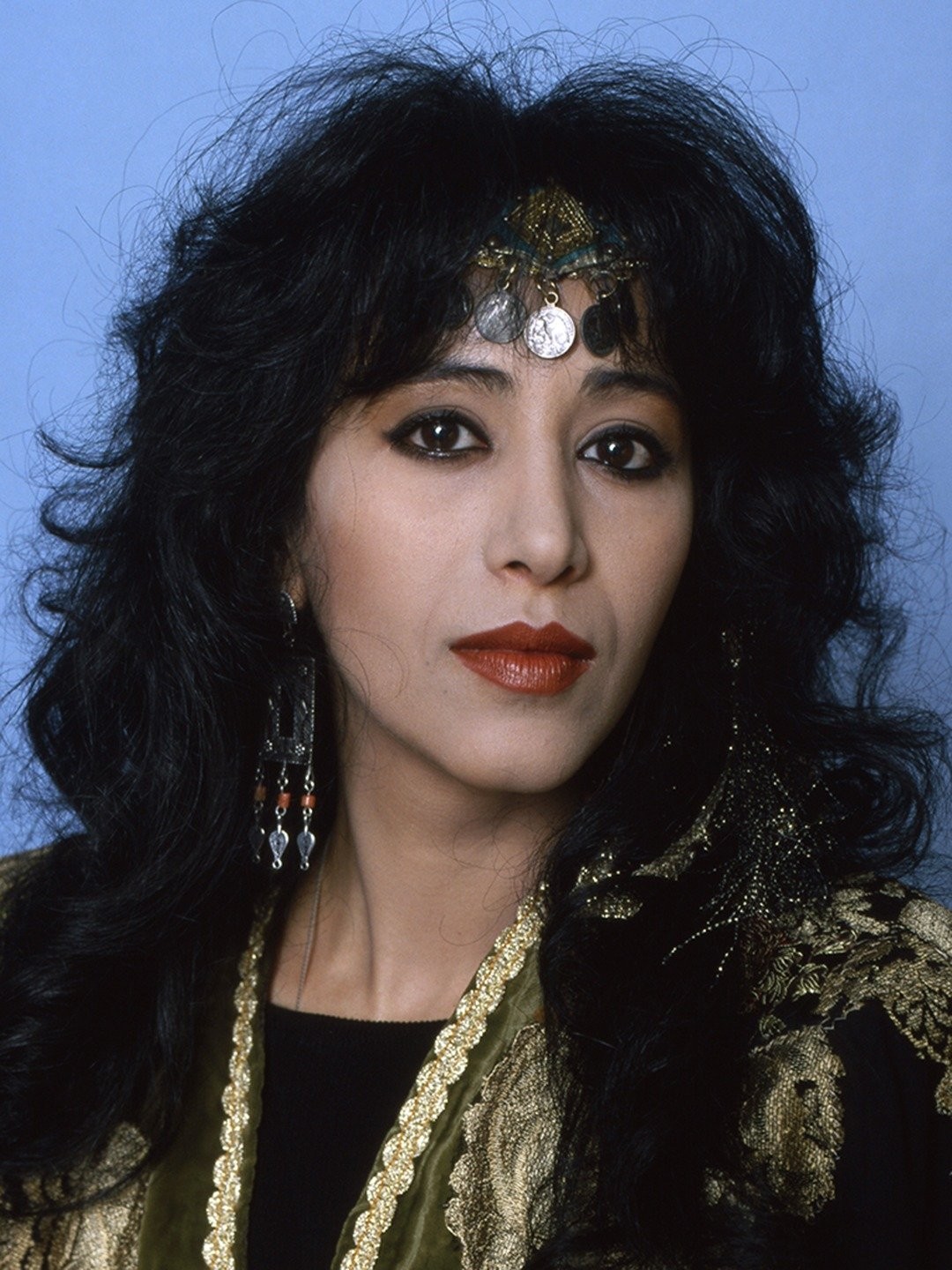Ofra Haza
Ofra Haza

Bat-Sheva Ofra Haza, known as the "Madonna of the East" or the "Israeli Madonna," was an Israeli singer, songwriter, and actress, renowned for her tender mezzo-soprano voice. Born on November 19, 1957, of Mizrahi Jewish (Yemenite-Jewish) heritage, Haza's music blended traditional Middle Eastern sounds with commercial styles, incorporating Eastern and Western instrumentation, orchestration, and dance beats, along with lyrics from Mizrahi and Jewish folk tales and poetry.
By the late 1980s, Haza had achieved international acclaim, finding success in Europe and the Americas and becoming a fixture on MTV. Her music resonated widely, earning her numerous platinum and gold discs and gaining popularity in the club scene. In the 1990s, she further solidified her status by appearing in movie soundtracks like Dick Tracy (1990) and the renowned Prince of Egypt (1998), with her vocals often sampled in hip hop tracks.
Haza's sudden death in 2000 due to an AIDS-related illness shocked the Israeli public and sparked controversy in Israel. Nevertheless, her impact on Israeli culture was profound, earning her recognition as one of the country's most significant cultural icons and a key figure in popularizing Mizrahi culture. Her legacy continues to inspire generations of music lovers, with Rolling Stone recognizing her as one of the greatest singers of all time, ranking her at number 186 on their prestigious list.
Bat-Sheva Ofra Haza was born in Tel Aviv, Israel, to Mizrahi Jewish parents who had migrated from Yemen to Israel in 1949, settling in the Hatikva Quarter, an impoverished neighborhood of Tel Aviv. She was the youngest of nine children to Yefet and Shoshana Haza, raised in a Masorti household. Despite being named Bat-Sheva by her parents, she was commonly referred to by her middle name, Ofra, by her siblings.
Ofra's musical journey was deeply influenced by her upbringing, with her parents teaching her traditional Yemenite songs from a young age. Her mother, Shoshana, who had been a professional singer in Yemen, played a significant role in shaping Ofra's musical direction, often performing at family gatherings and singing to her children. Additionally, Ofra was exposed to Israeli folk songs, as well as the music of iconic artists like the Beatles and Elvis Presley, further fueling her passion for music.
From an early age, Ofra exhibited a natural talent for singing, performing at local events such as weddings and serving as a soloist in her school choir. At the age of 12, she joined a local protest theater troupe called "Hatikva" (The Hope), where she quickly emerged as one of the troupe's most gifted performers. Recognizing her talent, manager Bezalel Aloni became her mentor and later her manager, guiding her career as she rose to prominence as Israel's leading pop star by the age of 19.
Despite her burgeoning music career, Ofra also served two years in the Israel Defense Forces, a mandatory requirement for Israeli citizens. Her time in the military did not hinder her musical aspirations but added to the depth of her experiences, shaping her into the iconic figure she would become.
Ofra Haza represented Israel in the Eurovision Song Contest 1983 with the song "Hi," achieving a remarkable second place with 136 points. However, her major international breakthrough came with the release of her album "Shirei Teiman" ("Yemenite Songs") in 1984. This album featured songs from Haza's childhood, blending authentic Middle Eastern percussion with classical instruments in unique arrangements.
One of her most iconic singles, "Im Nin'alu," taken from the album "Shaday" (1988), propelled her to further fame. The song not only won the New Music Award for Best International Album of the Year but also dominated the Eurochart for two weeks and received heavy rotation on MTV channels across Europe. It became a staple in classical hip-hop, being extensively re-released, remixed, and sampled by various artists.
Despite only briefly charting in the UK top 40 singles chart, "Im Nin'alu" became a favorite on dance floors across Europe and the US, topping the German charts for an impressive nine weeks. While subsequent singles like "Galbi," "Daw Da Hiya," and "Mata Hari" also received the dance-beat and MTV-style video treatment, none quite matched the runaway success of her first hit.
"Im Nin'alu" continued to leave its mark in popular culture, being featured in various forms, including on an in-game radio playlist of the video game Grand Theft Auto: Liberty City Stories (2005) and on Panjabi MC's album "Indian Timing" (2009).
Haza continued to receive critical acclaim for her subsequent albums, including "Fifty Gates of Wisdom" (1984), "Desert Wind" (1989), "Kirya" (1992), and "Ofra Haza" (1997). In particular, "Kirya," co-produced by Don Was, received a Grammy nomination in 1992.
In 1994, Haza released "Kol Haneshama" ("The Whole Soul"), her first Hebrew album in seven years. Although initially not a chart success, the album featured one of her biggest hits, "Le'orech Hayam" ("Along The Sea"), which gained significant prominence after Haza performed it in a memorial assembly for deceased Prime Minister Yitzhak Rabin. The song became an anthem in Israel, gaining even more significance following Haza's untimely death in 2000.
References
- "The Israeli Madonna". BBC Four. 2010. Retrieved 8 April 2015.
- ^ "Ofra Haza, Madonna of the East". Legacy.com. Archived from the original on 26 February 2015. Retrieved 8 April 2015.
- ^ Pareles, Jon (24 February 2000). "Ofra Haza, 41, Israeli Pop Singer Who Crossed Cultural Bounds". The New York Times. New York. Retrieved 28 July 2011.
- ^ "The 200 Greatest Singers of All Time". Rolling Stone. 1 January 2023. Retrieved 27 January 2023.
- ^ "Ofra Haza | Morning Becomes Eclectic". KCRW. 13 August 2009. Retrieved 23 December 2022.
- a b c "Ofra Haza". Deezer. Retrieved 23 December 2022.
- a b c "Ofra Haza, Tragic Israeli Pop Diva". Tablet Magazine. 23 February 2023. Retrieved 26 February 2023.
- a b c Joffe, Lawrence (25 February 2000). "Ofra Haza". the Guardian. Retrieved 20 January 2021.






































